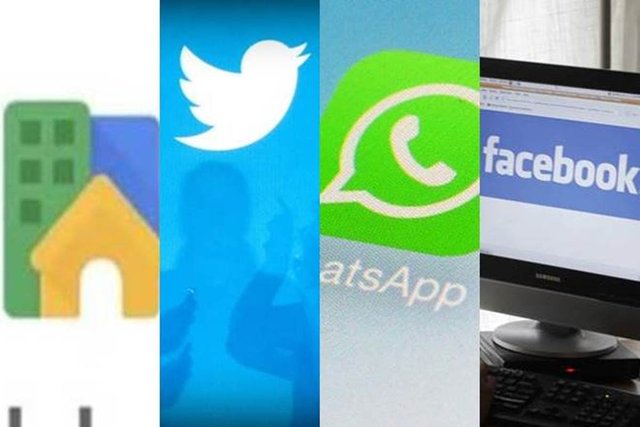Google Neighbourly Vs Whatsapp Vs Facebook Vs Twitter: The difference compared
With so many internet-based social networking platforms coming up with new features, the virtual world has become crowded like never before. The social media sites are not less than any revolution, which is booming through ever-increasing internet and smartphone penetration across the world today. Technology giants like Google, Microsoft, Facebook, Twitter etc. are shaping the way the people interact over social media platforms. Here is a comparison among Google’s under-testing tool Neighbourly, WhatsApp, Facebook and the Twitter. All the four have different sets of users and targets. However, the overlapping of users is obvious. Today, to reach out to the masses, one of the fastest means is the use of these platforms. Hence, it is necessary to understand their basic differences.
Google’s Neighbourly App:
The neighborhood network lets people share local expertise and crucial information with others in the vicinity. The crowd-sourced recommendations range widely from your kitchen needs to other daily requirements. The app allows users to ask questions and get answers from other users in their neighbourhood and surrounding area. Google has started the pilot run of the app in Mumbai.
These features of the Neighbourly app are starkly different, when compared to more popular social media apps like Facebook, WhatsApp and Twitter.
WhatsApp, the messaging giant,
WhatsApp is the web-based chatting application, enjoying the largest number of users in its segment. The encryption feature has added security sense to the platform. WhatsApp was founded by Jan Koum and Brian Acton. WhatsApp claims it started as an alternative to SMS. Now, it supports sending and receiving of text, photos, videos, documents, and locations. The application also enables users to send voice and video chats.
A user needs to just register his/her mobile number. The app works through the mobile number. The app is free to use, only the data charges are applicable, according to the subscription of the user. It also runs on the computer through its WhatsApp Web website. According to the company, the app is being used by more than 1 billion people in over 180 countries.
Twitter:
Twitter today is referred to as the most important microblogging site of the world. Twitter works through ‘tweets,’ which may contain photos, GIFs, videos, links, and text. Twitter is being used by almost all world leaders. Today, many world leaders like to announce official matters on this platform first.
A user needs to do a basic registration on the platform, which works through the website and mobile application. The tagging option along with directly tweeting someone are main features of the platform. Twitter has also become a source of news from all around the world, with major news agencies using it on a real-time basis to reach out to people around the globe. Twitter trends help to understand what is happening and trending around the world. One can follow anyone without any pre-permission on Twitter. It is more of a public platform.
Facebook:
Facebook, on the other hand, is a kind of social networking platform, which is more personalised. It is the world’s largest social network platform. Users register on its web platform and also through the mobile application. Here, the company’s idea is to create deep bonds through friendship. Facebook offers several features including uploading photos, videos, text posts with no word limit like twitter. On Facebook, a person sends a friend request to another person. It is up to that person to accept it or not. The features also include the creation of Pages to promote your businesses, ideas, blogs etc.
All four networking sites cater to the requirement of a different set of users. Whatsapp, being a messaging app on mobile phones, has become more grass root today. Neighbourly, is in the testing stage. It is altogether a different platform being designed to serve more localised needs. Facebook and Twitter are used at a much wider level, with Twitter being the first choice for world leaders and for common people, Facebook has become a tool for users to share everything from their food choices to the travel plans and personal photographs. It has virtually linked many without any country barriers.